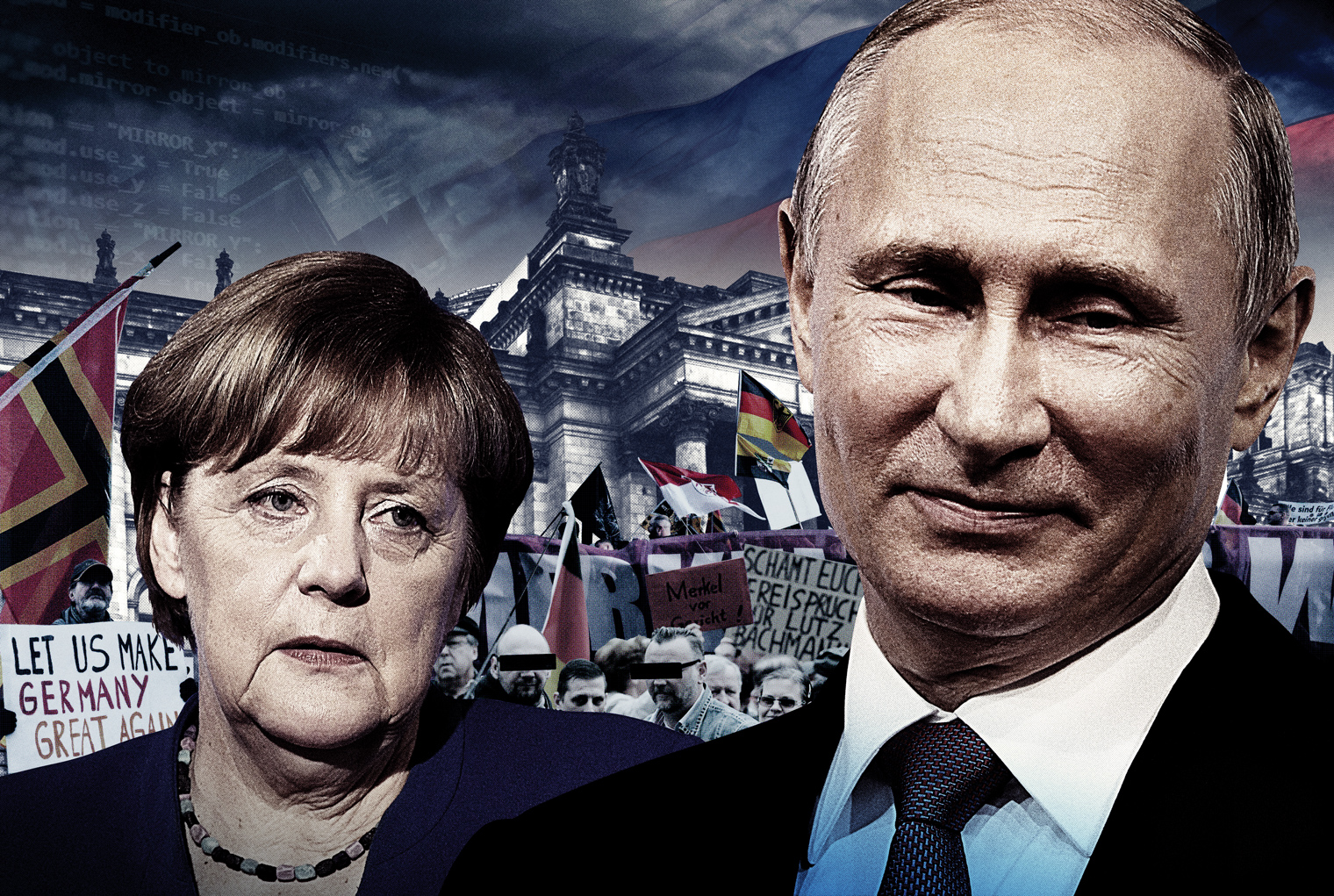
One morning in November, Simon Hegelich, a professor of political science at the Technical University of Munich, was surprised to get an urgent invitation from the office of German Chancellor Angela Merkel, who wanted to hear more about his research on the manipulation of voter sentiment. Less than two weeks earlier, the U.S. elections had ended in victory for Donald Trump, and the post-mortems were full of buzzwords the Chancellor urgently needed to understand: filter bubbles, bots, fake news, disinformation, much of it related to the claims that Russia had somehow hijacked the elections. “Basically she wanted to know what the hell is going on,” Hegelich recalls.
What was past, Merkel thought, may be prologue. With German elections scheduled for Sept. 24, the Chancellor knows that her bid for a fourth term in office may be subject to the same dirty tricks employed in the U.S. presidential race. As Europe’s most powerful leader and its most determined critic of the Kremlin, Merkel has long been a target of Russian influence campaigns. Troves of emails were stolen from her political allies in 2015 by the same Russian hackers who later targeted the U.S. presidential race. During her 12 years in power, Merkel has also watched the Kremlin’s media apparatus air broadsides against her policies in a variety of languages, including German, English, Spanish and French.
Her concern is not just the Russian media outlets that spread disinformation, Hegelich says. It is also the automated algorithms, known as bots, that help false reports go viral much faster than politicians or fact-checkers can debunk them. When American voters were shown a series of such stories from the U.S. elections, about 15% reported seeing them during the race; 8% said they believed them, according to a study published this spring by Stanford University. In June, when researchers in Germany asked a similar set of questions, 59% of Germans reported seeing fake news online; 61% said that it poses a threat to democracy.
So Merkel’s government is preparing for a siege. Her coalition in parliament passed a law at the end of June that will impose fines worth upwards of $50 million on Facebook and other social media companies that do not promptly remove “illegal content,” a term that Merkel’s government has used to target everything from hate speech and pornography to malicious propaganda. “False news is a threat to our culture of debate,” the official behind the law, Justice Minister Heiko Maas, told the German weekly Welt am Sonntag in January. Two months later, when he presented a draft of the Network Enforcement Act to reporters in Berlin, Maas made clear that the government aimed to regulate social media with an unprecedented rigor. “There should be just as little tolerance for criminal rabble rousing on social networks as on the street,” he said.
Political leaders in Washington are well aware of the challenge. In an interview with MSNBC aired on Aug. 6, the White House National Security Adviser H.R. McMaster said President Trump has a “clear-eyed understanding” of the regime in Moscow. Its attempts to undermine the West, he said, include a “sophisticated campaign of subversion and disinformation and propaganda that is going every day in an effort to break apart Europe and that pit political groups against each other … to sow dissension and conspiracy theories.”
Germany’s Network Enforcement Act is among the more extreme reactions to this campaign, though it’s hardly the only one. The European Union has also created an office devoted to debunking fake news and Russian propaganda. The Czech Republic has set up a police agency to scan social media for disinformation and other “hybrid threats.” French President Emmanuel Macron banned two Russian news organizations, RT and Sputnik, from his campaign headquarters in April.
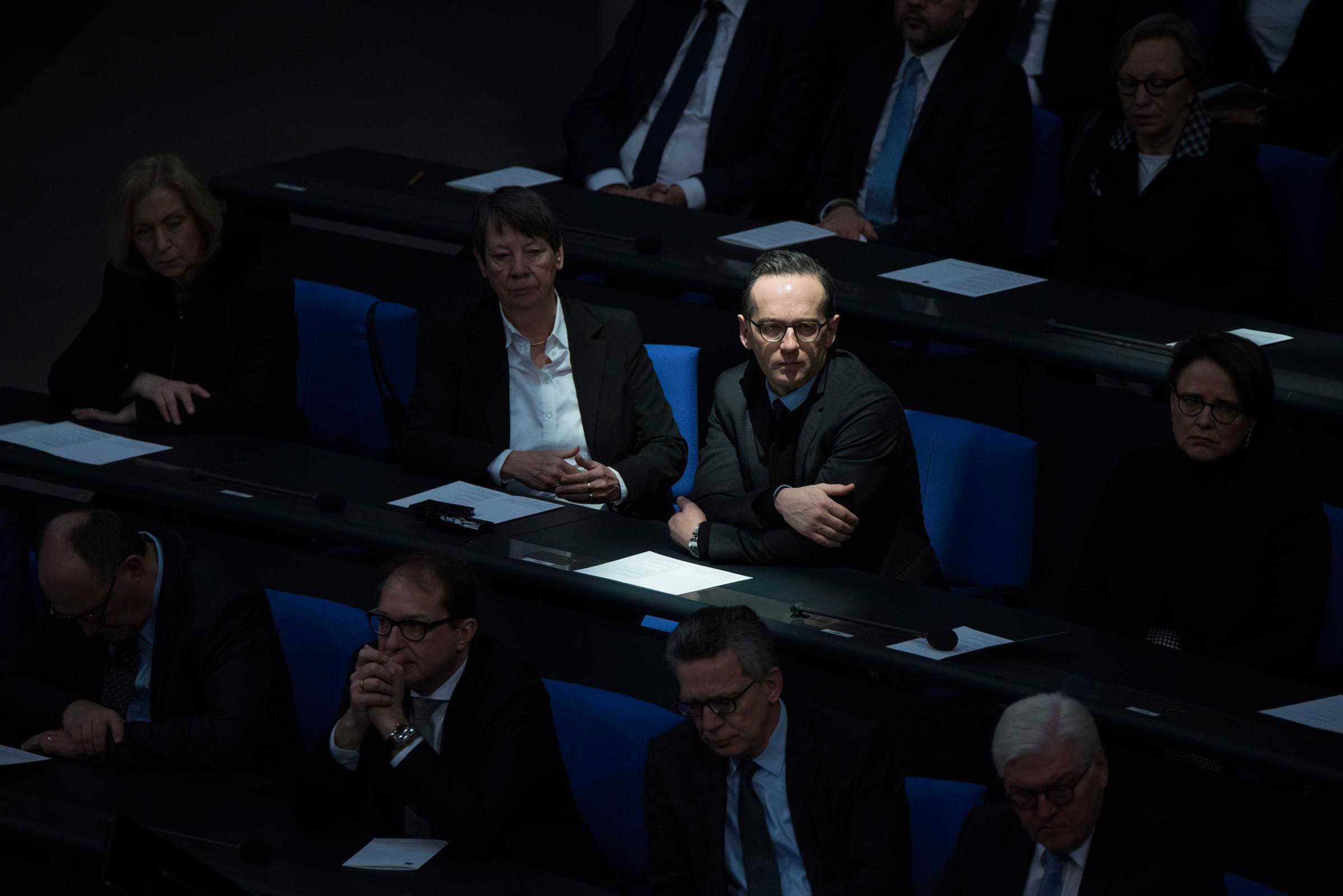
All of these steps point to the fears – some would say the paranoia – that the tools of political sabotage have advanced enough to threaten Western democracies. “Democracy is all about public opinion,” Hegelich recalls telling Merkel when they met. “And if there are new ways to manipulate public opinion, then we will see a new type of democracy.”
In some ways this is already happening. In an era when anonymous hackers can steal the secrets of virtually any politician, and where an Internet connection is all that’s needed to command an audience of millions, the rules fashioned and maintained by European democracies over decades are breaking down.
What takes their place is anybody’s guess. But Russia and Germany have emerged as the most determined players in the scramble to adapt to this terrain and, where possible, to reshape it. The German vote will be an early test: either the campaign will unfold in the same atmosphere of hacks, leaks and disinformation that marred the U.S. elections last fall, or they will progress in typically German fashion, orderly and somewhat boring, under the rules that Merkel’s government is trying to rewrite on the fly.
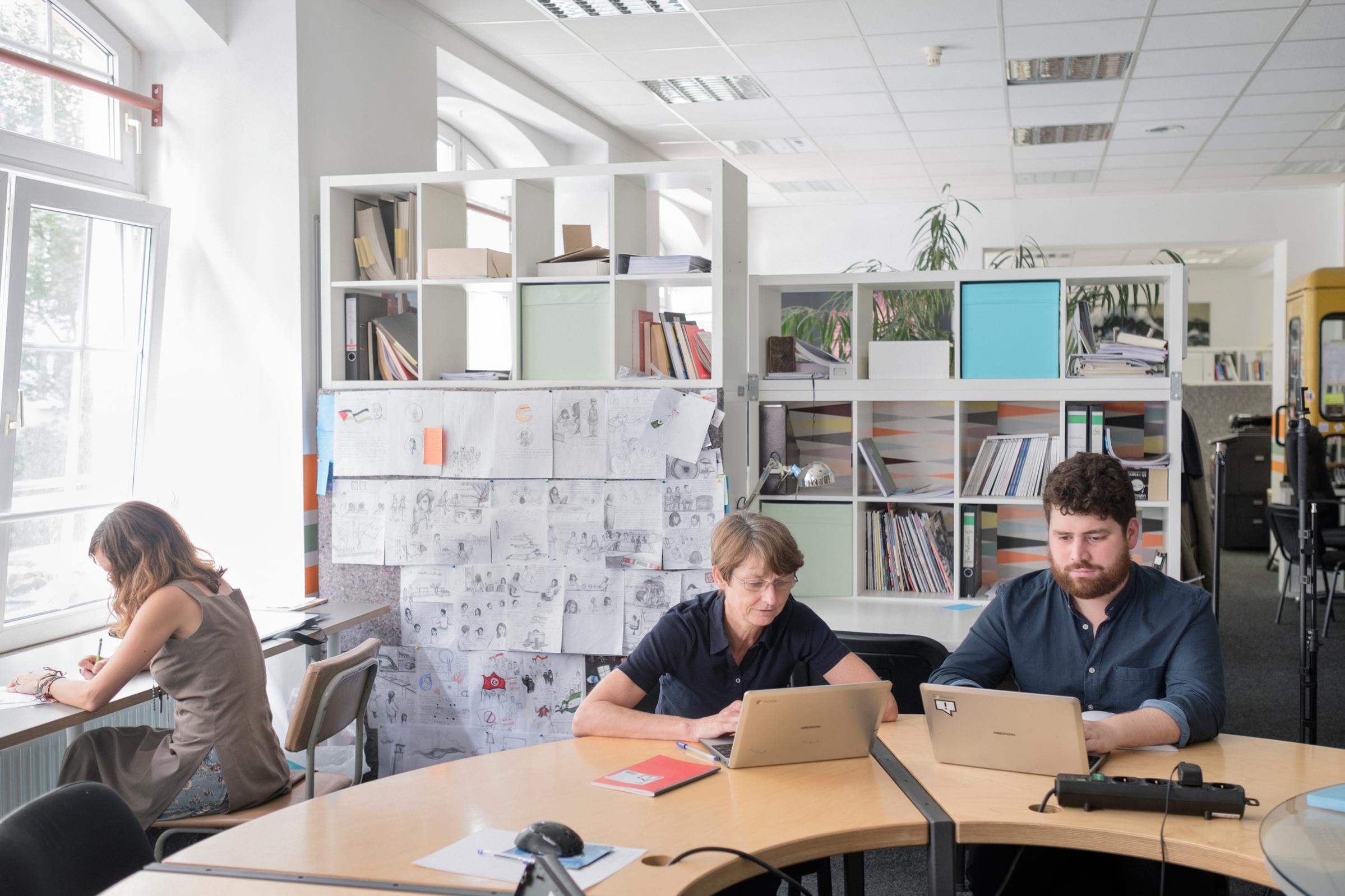
The Fake News police
From his offices in London, Richard Allan, Facebook’s vice president for public policy in Europe, has watched these German rules take shape with a mix of surprise and resignation. The Network Enforcement Act, which is due to take effect in October, would give social networks a new, weightier role in our political debate. Instead of leaving it to courts or legislators to decide what constitutes “fake news,” defamation or propaganda, the bill tries to make Facebook an “arbiter of truth,” says Allan. “And we’re just not comfortable with that.”
But neither can Facebook claim to be a neutral channel of communication, as indifferent to what its users say as the wires that connect our telephones. That passive approach went out the window during the 2016 elections. Within a week of Trump’s victory, Mark Zuckerberg, the co-founder and chief executive of Facebook, admitted that the public was right to ask about the company’s role in spreading fake news and about the impact it may have had on the elections. “These are very important questions and I care deeply about getting them right,” he wrote in a statement. He also cautioned, however, that “identifying the ‘truth’ is complicated.”
Rather than play the role of truth teller itself, Facebook has effectively outsourced it to independent fact-checkers, who sift through an endless stream of posts, articles, conspiracy theories and rumors and try to set the record straight. In the U.S. Facebook has begun warning users of “disputed content” and providing links to reliable sources like the Associated Press. In Germany, the company’s fact-checking partner is an investigative journalism start-up called Correctiv, whose cluttered newsroom is on the second floor of a vine-covered building in central Berlin, beneath a hostel and above a bar.
Jutta Kramm, the director of its four-person fact-checking team, doesn’t much care whether the fake news comes from Russia or from its ideological fellow travelers on the German right wing. She only wants to keep their propaganda out of her country’s elections. “We just want to be prepared for them,” says Kramm, a former editor at the Berliner Zeitung newspaper. “It’s really important that we make our electoral decisions on the basis of facts and not lies.”
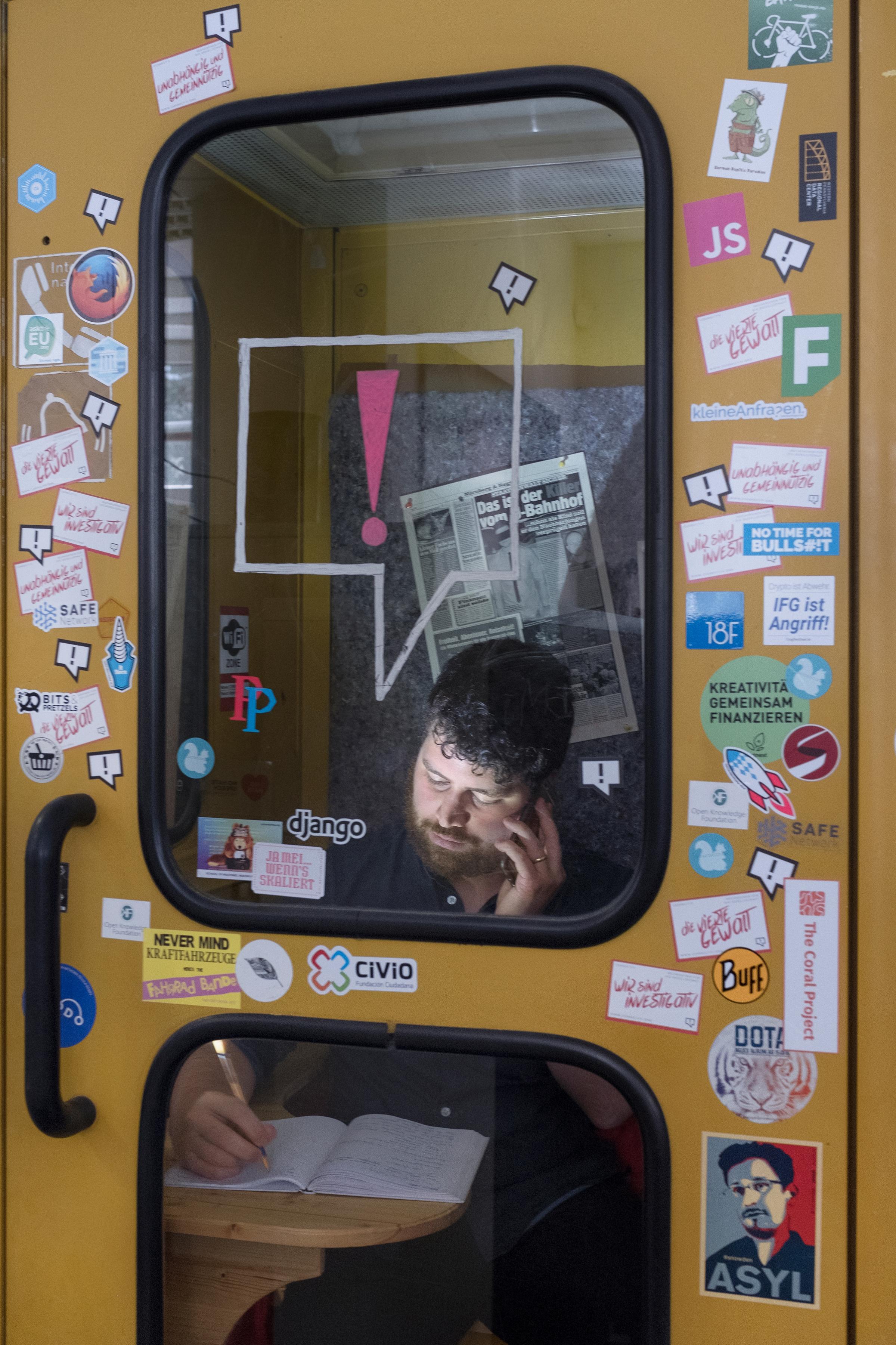
Her job is to divine the difference. Each morning an email from Facebook arrives in her inbox full of dubious material dredged up from across the social network. Much of it comes from automated filters that are designed to pick out hoaxes and clickbait. Regular Facebook users compile the rest by flagging posts they deem wrong or offensive. The result is a digital mess that Correctiv sifts through in search of posts that are purposely misleading and likely to spread.
From their hushed corner of the newsroom, whose walls are a collage of stickers and posters for civil rights campaigns around the world, the fact-checkers focus on the lies that could do the most political damage. “We’re not going to work on a rumor that some guy is just sharing with his cousins,” says Jacques Pezet, one of the Correctiv fact-checkers. In Germany, the most common hoaxes relate to immigration policy. Their aim is to spread xenophobia and to undermine Merkel by playing up the risks of her openness toward migrants, especially her decision in 2015 to welcome hundreds of thousands of refugees from Syria, Iraq and Afghanistan. Some of these posts involve imaginary or wildly exaggerated tales of migrants assaulting German women or stealing animals for ritual sacrifice. Others suggest that the government wants to seize property from German citizens in order to house more migrants.
When a story like these appears in the Correctiv inbox, its journalists try to track down the original source and produce a report exposing its errors and falsehoods. That part of the job is hardly groundbreaking. There are plenty of fact-checking operations in the U.S. and Europe that have long sought to keep politicians and news sources honest. What’s different about Correctiv is its ability, with help from Facebook, “to get into the filter bubble of the people who are reading fake news,” says Kramm.
As part of their cooperation, Facebook has agreed to reach into the news feeds of its users and put a warning label next to the disputed posts. The idea is not to censor or delete the content but to make readers think twice about its sources while offering them a way to double check its claims. “We’re not the ones doing the fact checking,” says Allan. “The healthy ecosystem is one in which expert fact checkers are doing their job, and they can reach people through Facebook.”
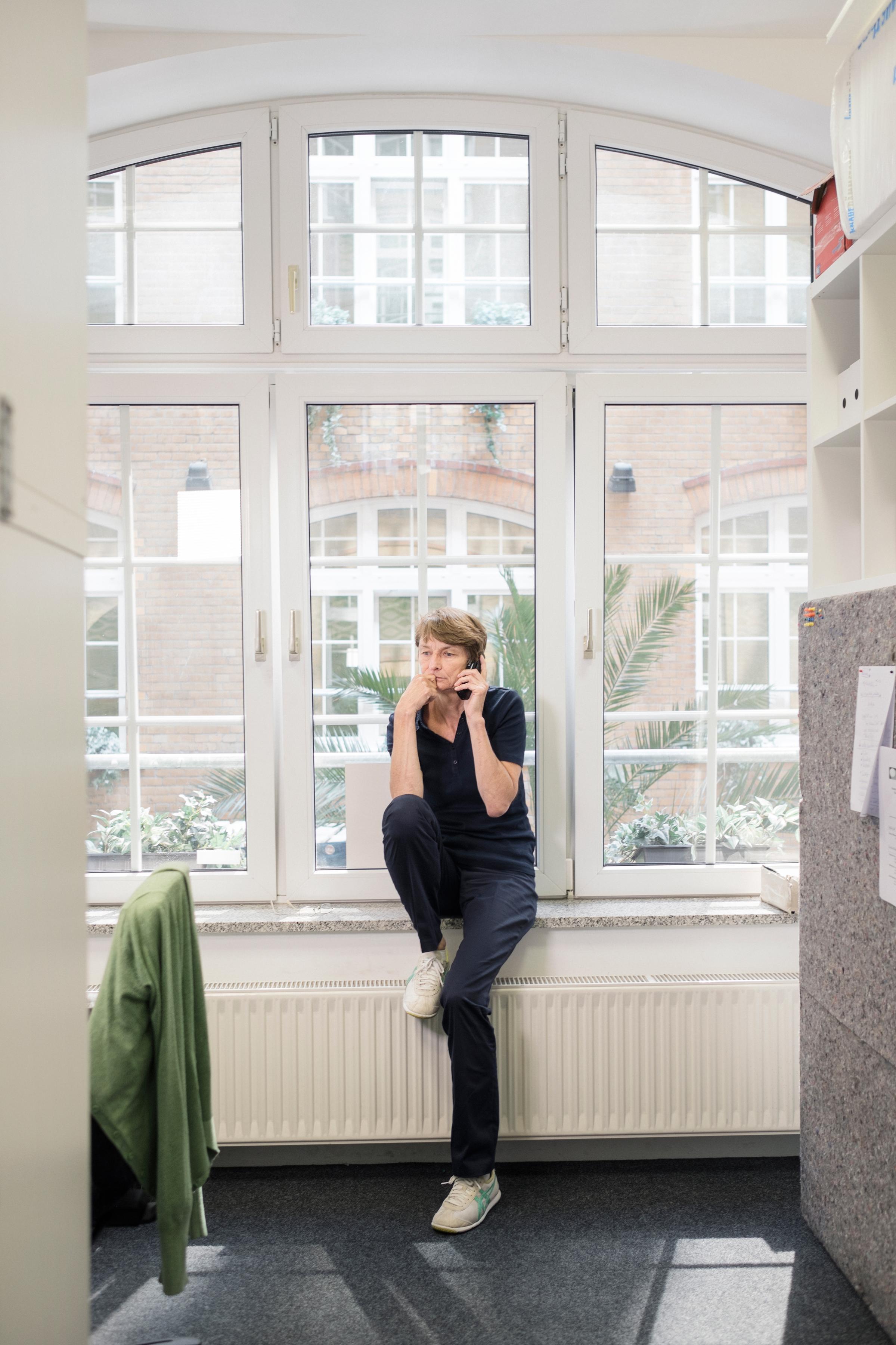
The ‘fighters of the information war’
The approach taken by Correctiv still allows plenty of fake news to spread. Over the last few months, the agency has developed a list of the major forces in the field of propaganda, primarily right-wing agitators, anonymous bloggers and networks of bots that generate or amplify the latest hoax. They often seem to work in concert with each other, swarming around some issue that gets their attention or advances a broader agenda.
Among the most aggressive fixtures on this list is a small but growing Russian operation known as News Front, a multimedia outlet that pumps out content in several languages, including German, Spanish, and English. With about ten staff members and a few dozen contributors around the world, it is among the better-resourced players in the Russian media ecosystem – even though its sources of funding are opaque.
Konstantin Knyrik, the 28-year-old founder and editor of News Front, thinks of himself less as a journalist than an information warrior for the digital age, and he has the career and the connections to prove it. As a teenager in the mid-2000s, he became an active member of the Eurasian Youth Union, a group of hardline Russian nationalists who campaign for Moscow to restore the empire it lost after the fall of the Soviet Union. When he was just 16 years old, Knyrik became its representative in the region of Crimea, a vast peninsula in southern Ukraine. In spring 2014, as Russian troops invaded the region and prepared to annex it, Knyrik led a column of pro-Russian paramilitaries to seize the headquarters of the Crimean Center for Investigative Journalism, the region’s leading independent news source. The troops forcibly expelled the Center’s journalists and confiscated their equipment. Knyrik then created News Front in its place.
Today his outlet films its broadcasts at a studio in Simferopol, the capital of Crimea, with oversight from the region’s Kremlin-backed authorities. Speaking by phone from his offices in June, Knyrik cast himself as a counterweight to the West’s propaganda war against Russia: “We want people to see an alternative point of view.” In the U.S. and Europe, he says, “All they have is an information vacuum, with all this stuff being pounded into their heads, all these absurd lies from the official propaganda channels.”
It is a favorite narrative of Russian state media; the editor in chief of the Kremlin-funded RT network, Margarita Simonyan, told TIME much the same thing in 2015: “No one shows objective reality,” she said. Even the idea of objective reporting is not consistent with this worldview. There is only the spin of competing perspectives, none of which is more valid than the others.
His own newsroom, Knyrik insists, is independent of government influence, and his financing comes from online donations and “sympathetic businessmen.” Yet News Front reporters have somehow been granted extraordinary access to the Russian armed forces. They often embed with Russian troops and paramilitaries fighting in Syria and eastern Ukraine, frequently running footage or live streams from the front lines. In a report released in June, a News Front editor filmed through the crosshairs of a machine gun mounted on a Russian coast guard vessel in the waters off Crimea, whose borders are now patrolled by the FSB, the Kremlin’s main intelligence service.
What makes News Front stand out from its allies is that it rarely even pretends to uphold traditional journalistic standards. Its website refers to the agency’s staff as “voluntary fighters of the information war,” whose mission is to “defend the interests of Russian civilization and to show the true face of the enemies of the Russian world.” Sputnik and RT, Russian outlets with overt funding from the state, try to act like professional media companies, presenting a Russian twist on world events usually without resorting to outright jingoism and fabrication. Their Crimean cousin, by contrast, acts more like a scrappy paramilitary unit, pushing the same goals and ideology more aggressively, free of direct links to the Kremlin. The site’s contributors in Europe often publish their work anonymously, providing a layer of protection from the authorities that Russia’s official outlets do not enjoy. The main stringer for News Front in Germany, for instance, uses online aliases, and Knyrik declines to provide his real name. “I worry about him and our other volunteers. They could be arrested,” he says, as though his reporters in Europe are soldiers behind enemy lines.
In an analysis of Russia’s influence operation in Germany published in June, the Digital Forensics Lab of the Atlantic Council, a non-partisan think tank based in Washington, found News Front to be one of the Kremlin’s three main propaganda outlets in Germany, alongside Sputnik and RT. Taken together, these three operations have a sizeable audience in Germany, with nearly half a million followers on Facebook, enough to rival some of the country’s leading publications. According to the Digital Forensics Lab report, their main asset appears to be a robust network of German “amplifiers,” including both automated bots and real social media users who help their reports go viral by sharing and reposting them thousands of times. “Together, this network represents a potential channel by which disinformation could be inserted into the German information space ahead of the elections,” the report states.
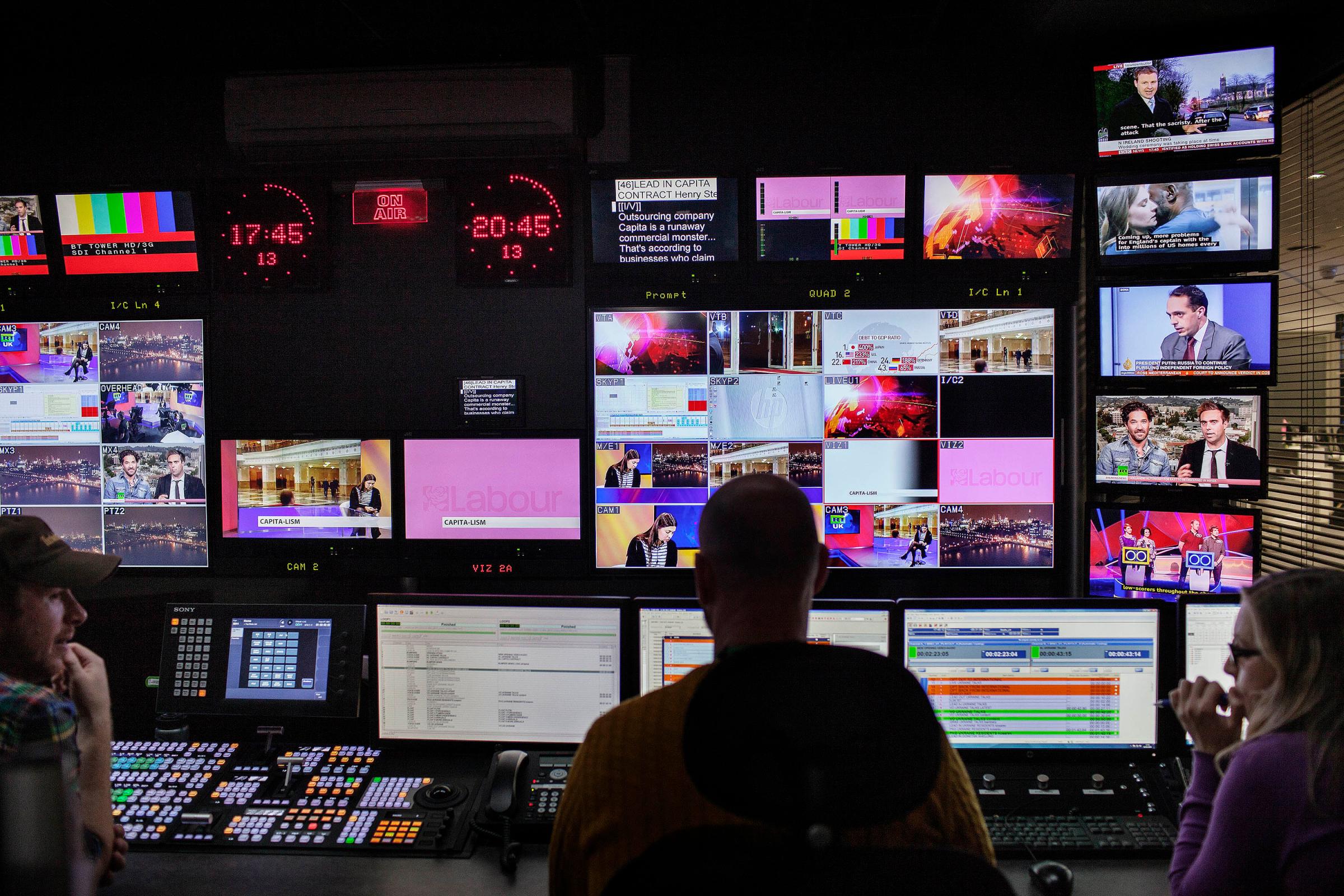
What lies ahead
If Russia and Germany are building up the front-lines in this new information war, the authorities in Europe are still attempting to marshal the troops. The Brussels-based organization known as East StratCom, which the European Union created in 2015 to counter Russian misinformation, seems woefully underequipped to achieve that objective.
With help from a network of NGOs, diplomats, think tanks and media professionals, the three journalists at East StratCom compile a weekly list of fake news stories and try to debunk them on Facebook and Twitter. But the agency does not even have its own budget, surviving on the scraps from the E.U.’s budget for strategic communications. And its reach on social media platforms is tiny; its Facebook page has only 17,000 likes, compared to the million plus on that of the Kremlin-funded agency Sputnik.
“They have thousands of people telling stories which do not reflect reality,” Jean-Claude Juncker, the head of the E.U.’s executive branch, told TIME in February. “We have only a few people, because I don’t want to engage a thousand new civil servants to react to this.”
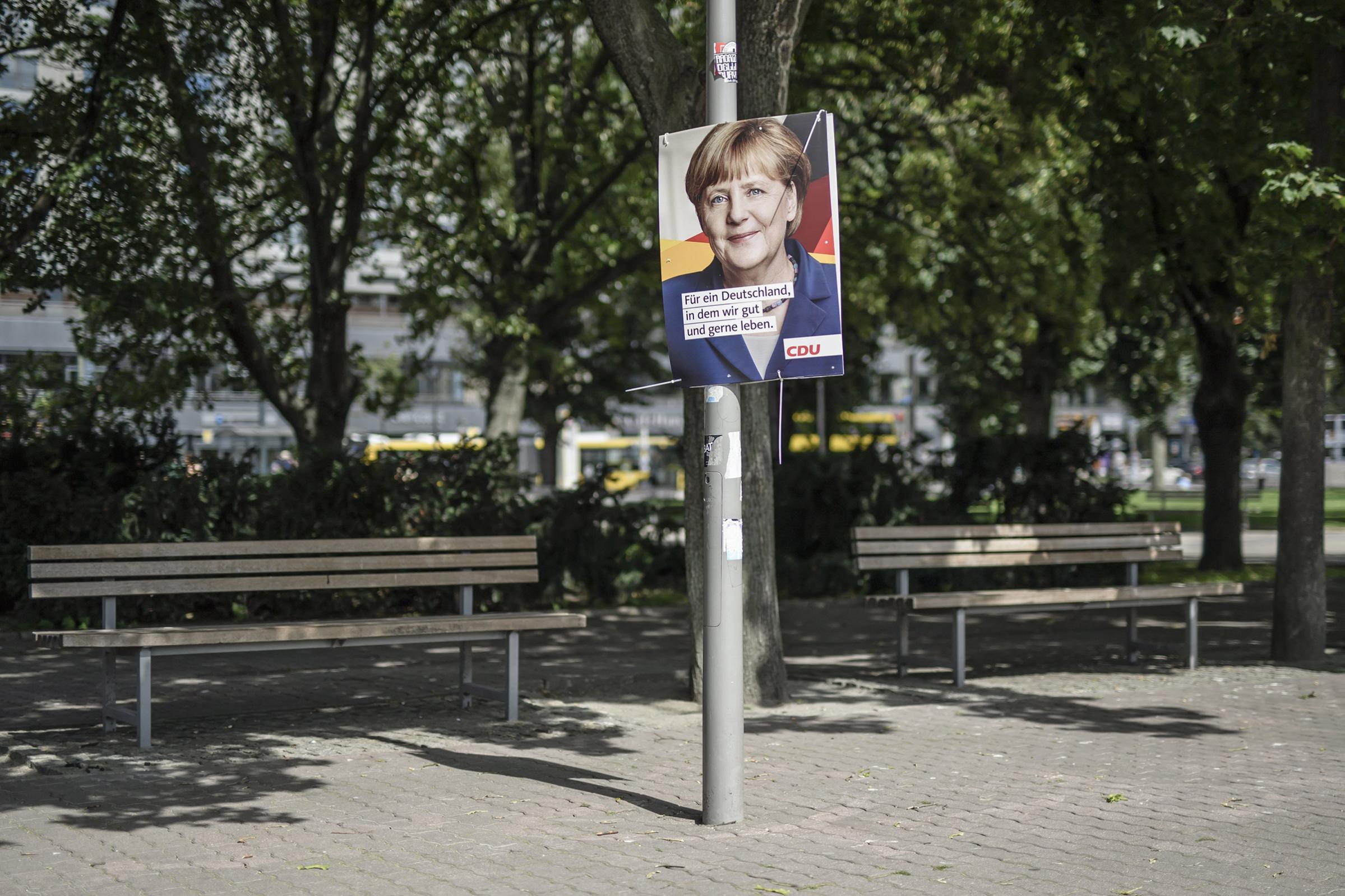
Besides, what good would such an army do? Chasing hoaxes around the Internet often draws more attention to them, and in an age of partisan divides, many readers would be inclined to believe a deception as long as it supports their political views. “Fake news always has an early start,” says Peter Burger, a professor at the University of Leiden in the Netherlands who studies the way that hoaxes spread. “And even if we fact check them, a lot of people will say we are just liberals in an ivory tower, or part of some conspiracy.”
The better approach, he says, might be introduce a fact-checking curriculum in schools and make students more aware of their sources of information. But that educational approach will take years to have an impact, and in the meantime fake news technology will continue to advance. In a study published in July, academics at the University of Washington created software to “synthesize” a video of Barack Obama delivering lines he had never actually spoken.
“From a technical point of view, you can create videos that look absolutely like they are real,” says Hegelich, who continued advising the German government after that first meeting with Merkel in November. Right now, it would take hours if not days to produce a forensic analysis showing that such a video is fake, and by then its impact would be almost irreversible. At the very least, it would make voters in Germany or elsewhere unsure of what to believe as they head to the polls. “It leaves a trace of doubt over everything,” says Hegelich. And for any effort to undermine a democracy, that would be mission accomplished.
— With reporting by Charlotte McDonald-Gibson / Brussels
More Must-Reads from TIME
- Donald Trump Is TIME's 2024 Person of the Year
- Why We Chose Trump as Person of the Year
- Is Intermittent Fasting Good or Bad for You?
- The 100 Must-Read Books of 2024
- The 20 Best Christmas TV Episodes
- Column: If Optimism Feels Ridiculous Now, Try Hope
- The Future of Climate Action Is Trade Policy
- Merle Bombardieri Is Helping People Make the Baby Decision
Contact us at letters@time.com